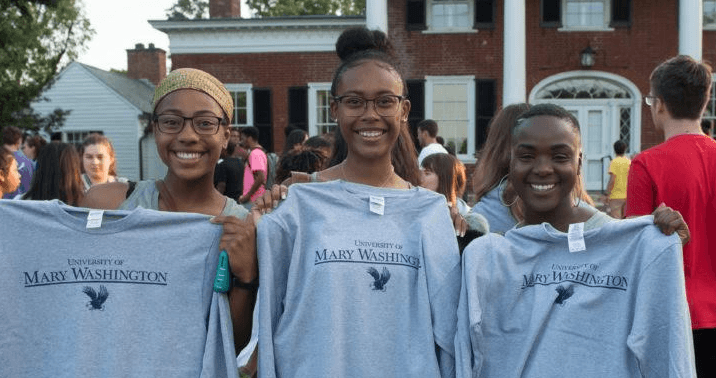Expensive first year student program should be optional
3 min read
News & Media Relations | umw.edu
By KELSEY SHEFFER
Staff Writer
First Year Students are being taken advantage of through University of Mary Washington’s new student programs that cost both money and time. Once you put your deposit in to attend UMW, you are asked to complete the next steps in pursuing your academic career here. These steps include picking your FSEM and your orientation day. However, it doesn’t mention that these “next steps” will cost you almost $500. Yes, that is not a huge amount of money compared to what the university students are paying in general fees, tuition, housing, meal plans, but it is a big sum if you are taking out loans or working to pay for college on your own. So what goes into this “New Student Program & Arrival” Fee?
Think back to the first week on campus when no one else was on campus except for first year students. The uber-enthusiastic peer mentors and orientation leaders were so excited to show freshman around. Students were forced to get up at 8 a.m. and were shoved into “fun activities” that would last you well into the night, leaving you drained emotionally and physically and then, it starts all over again the next day. This type of torture is something that not only takes away from your time settling into your new dorm and your new community, but it is also financially taxing. Freshman are paying for every handout, every magician that performs, every pen that is handed out during Honors Convocation and every single “free” shirt or bag that you get. Yes, it is cool that you get to eat ice cream from a swimming pool on President Paino’s lawn, but is it worth the cost?
This fee also covers the cost for school to the salaries for the Peer Mentors and Orientation Leaders who are supposed to be your resource during your first semester. It may be a surprise that those smiling faces are paid for in student fees. These are students who during the fall are supposed to plan three events that pertain to Health, Social, and Academics. This only provides freshmen with more stress because the school forces freshman to go to these events. This limits the time for freshman to acclimate to campus.
When you see your peer mentor wave to you at the UC, you duck and cover or when they send you a text to remind you of an “exciting new event on campus” you immediately delete it because you do not have the time or energy to even say no. You are paying for this inconvenience, paying for this stress, and paying for limited time.
I have the perspective of being on both sides of the issue. I was a peer mentor in the fall and the reaction I got from my mentees was mixed; however, most of them could care less about going to the events or participating in the program, and to be honest, I was proud of them. The First Year Program shouldn’t be forced on students. It should be a resource like the Digital Knowledge Center or the IT Desk, but not a mandatory personal connection. Peer Mentors can be helpful though when you need to know when to sign up for classes or if something terrible happens to you and you are in need of medical attention or a shoulder to lean on, but the relationship shouldn’t be forced.
Overall, the first year program shouldn’t be something that every student should be required to participate in because it costs a lot of time and money, but those who believe they need that support system should be able to have one. However, most students would be content to explore this experience with an extra $500 in their pocket and more downtime.











